CLL Stages and Treatments
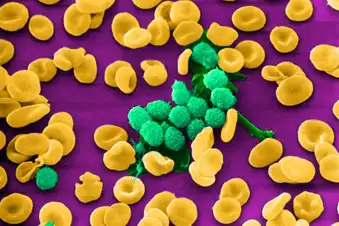
What Is CLL?
Chronic lymphocytic leukemia (CLL) is a cancer that affects a type of white blood cell called lymphocytes. When you have it, some blood stem cells in your body don't grow properly and the resulting lymphocytes can't fight infection very well. These cancer cells tend to make copies faster than normal and they live longer too, so there's less room for healthy blood cells. It most often happens to middle-aged or older adults.
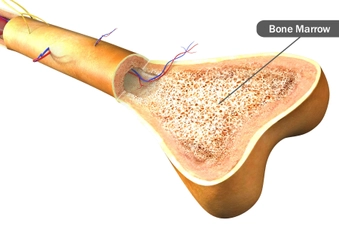
How CLL Spreads
This type of leukemia starts in bone marrow -- the spongy tissue inside bones where blood cells are made. From there, it moves into your blood. Over time, the cancer cells can spread to other parts of your body like the liver, spleen, and lymph nodes.
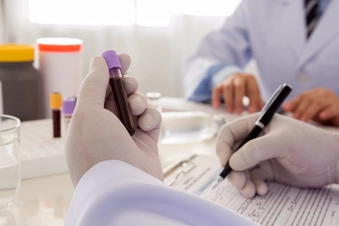
How Serious Is It?
The Rai staging system is usually what doctors in the U.S. use. It describes CLL based on the results of blood tests and a physical exam when you're diagnosed. Everyone with CLL will have more lymphocytes in their bone marrow and blood than there should be, for no good reason. And a large number of them will have come from the same cell.
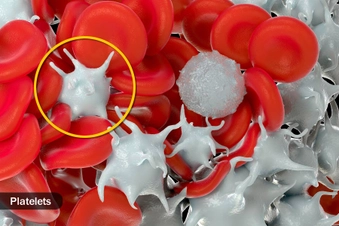
Stage 0
The number of red blood cells and platelets are almost normal. Your lymph nodes, spleen, and liver are fine. You're at low risk and probably don't need treatment now.
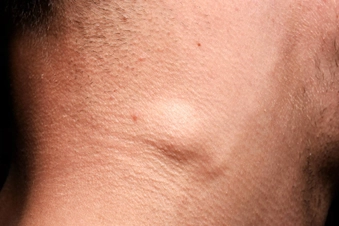
Stage I
This stage is intermediate risk. The difference is that your lymph nodes are enlarged. These are part of your immune system. They help fight infections as well as filtering out dead and damaged cells, and they swell when they're working hard. Unless your lymph nodes are very big or the number of lymphocytes in your blood has gone up quickly, you likely won't need treatment yet.
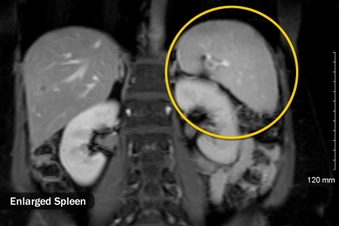
Stage II
Your spleen or liver is larger than normal. Your lymph nodes might be swollen, too, but not necessarily. This is also an intermediate risk stage, and you'll start treatment if your doctor thinks your symptoms or lymphocyte count are serious.
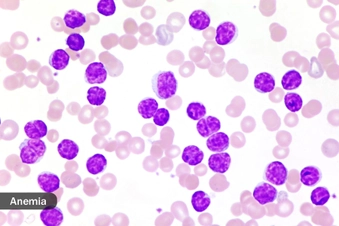
Stage III
The number of other blood cells are affected. At stage III, you don't have enough red blood cells (a condition called anemia), although your platelet count is near normal. Your lymph nodes, spleen, or liver might be enlarged, but they don't have to be. This is an advanced, high-risk stage, and you'll need treatment.
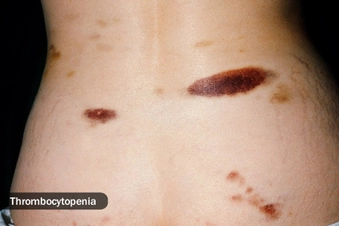
Stage IV
This is the most serious stage. The key is that your platelet count is low, which means your blood won't clot well (thrombocytopenia). You may also have anemia, or swollen lymph nodes, spleen, or liver -- or you might not.
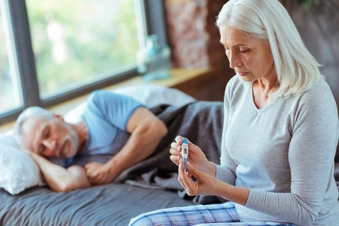
Symptoms
People usually don't realize there's anything wrong at first. CLL is typically found when you get a blood test for another reason. But along with giving you swollen lymph nodes and a sore or full feeling below your ribs, later stages can make you very tired and cause fever, infections, night sweats, and weight loss.

Treatment Strategy
The goal is to ease symptoms and keep the cancer from getting worse; CLL can't be cured. What's right for you depends on things like your age, the stage and genetic makeup of the cancer, the symptoms it's causing, and your overall health. If treatment works, you may have no signs of cancer for a while, called remission. It will likely come back though. The next round of treatment might be the same, or your doctor may try something else.
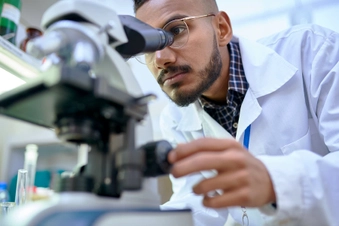
Watch and Wait
The "chronic" part of CLL means that it gets worse slowly. In the early stages, there are more downsides than benefits of treatment. So your doctor will schedule regular exams and tests to check for changes in your condition. You might take part in a clinical trial that tests a new treatment to see if it makes a difference.
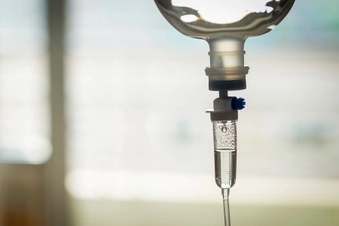
Chemotherapy
Chemo drugs attack and kill any fast-growing cells. You might get one chemo drug or several. Your doctor will probably prescribe other kinds of medicine, too. IV chemo is usually done in a cycle, so your body rests between doses.
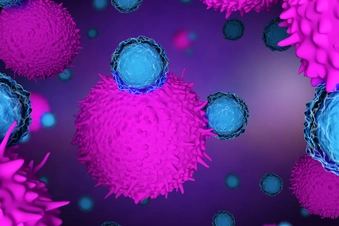
Immunotherapy
Monoclonal antibodies help your immune system find cancer cells so it can destroy them. Drugs including alemtuzumab (Campath), obinutuzumab (Gazyva), ofatumumab (Arzerra), and rituximab (Rituxan) latch onto or react with specific proteins on the outside of the cells. They're often given along with chemo. You may be more likely to get sick when you're taking these because they change how your immune system works.
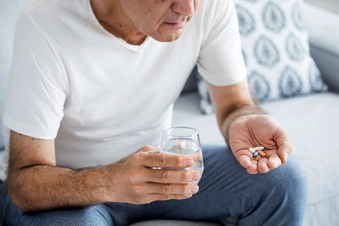
Targeted Drug Therapy
These medicines work by focusing on the changes in cells that turn them into cancer. You'll get your cancer cells tested to find out which drug is the best fit, including acalabrutinib (Calquence), duvelisib (Copiktra), ibrutinib (Imbruvica), idelalisib (Zydelig), or venetoclax (Venclexta). They tend to be easier on your body than chemo because they attack fewer cells, and are often included in the first line of treatment.
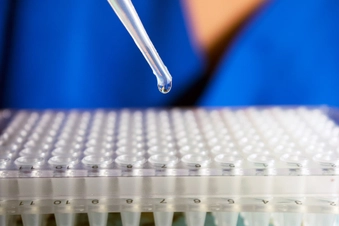
Stem Cell Transplant
Although bone marrow transplants were a common treatment in the past, they are less common now because drug combinations work so well. You usually won't get one unless you're younger and your hard-to-treat CLL has come back, or as part of a clinical trial. After high doses of chemo and sometimes radiation, you'll get stem cells from a donor to help rebuild your bone marrow so it can make healthy blood cells.
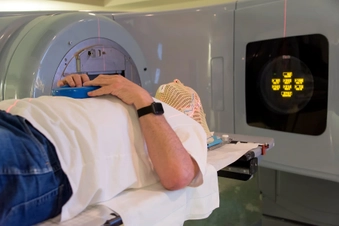
Radiation and Surgery
Your lymph nodes and spleen could filter out so many leukemia cells that they swell, and your doctor may use radiation to shrink them. If that doesn't work, surgery to remove an enlarged spleen can relieve the pressure it puts on nearby organs and the resulting symptoms. It might also improve your blood count for red cells and platelets. But neither of these treatments treat the CLL.

Related Problems
Vaccines, antibiotic and antiviral medicines, and donated antibodies can help prevent certain infections. Some people need transfusions or medication to make sure they have enough red blood cells or platelets. Gentle massage, yoga, meditation, exercise, and other ways to relax can help you deal with fatigue. Avoid massage in areas that have had focused radiation therapy, have enlarged lymph nodes, or your cancer has affected your lymphatic system. Your doctor will keep checking you for signs of other cancers, too.
Show Sources
Photo Credits:
1) Keith R. Porter / Science Source
2) 7activestudio / Getty Images
3) utah778 / Getty Images
4) Peddalanka Ramesh Babu / Getty Images
5) DR P. MARAZZI / Science Source
6) Steven Needell / Science Source
7) M.I. Walker / Science Source
8) Clinical Photography, Central Manchester University Hospitals NHS Foundation Trust, UK / Science Source
9) Yacobchuk / Getty Images
10) DragonImages / Getty Images
11) SeventyFour / Getty Images
12) kckate16 / Getty Images
13) Meletios Verras / Getty Images
14) seb_ra / Getty Images
15) CIPhotos / Getty Images
16) JCPJR / Getty Images
17) DragonImages / Getty Images
SOURCES:
American Cancer Society: "What Is Chronic Lymphocytic Leukemia?" "How Is Chronic Lymphocytic Leukemia Staged?" "Targeted Therapy for Chronic Lymphocytic Leukemia," "Monoclonal Antibodies for Chronic Lymphocytic Leukemia," "Stem Cell Transplant for Chronic Lymphocytic Leukemia," "Surgery for Chronic Lymphocytic Leukemia," "Supportive Care for Chronic Lymphocytic Leukemia," "Living As a Chronic Lymphocytic Leukemia Survivor."
National Cancer Institute: "Chronic Lymphocytic Leukemia Treatment (PDQ®)–Patient Version."
Mayo Clinic: "Chronic lymphocytic leukemia."
Leukemia & Lymphoma Society: "Chronic lymphocytic leukemia," "CLL Staging," "Watch and Wait," "Chemotherapy and Drug Therapy," "Splenectomy."
UCSF Health: "Chronic Lymphocytic Leukemia," "Chronic Lymphocytic Leukemia Treatment."